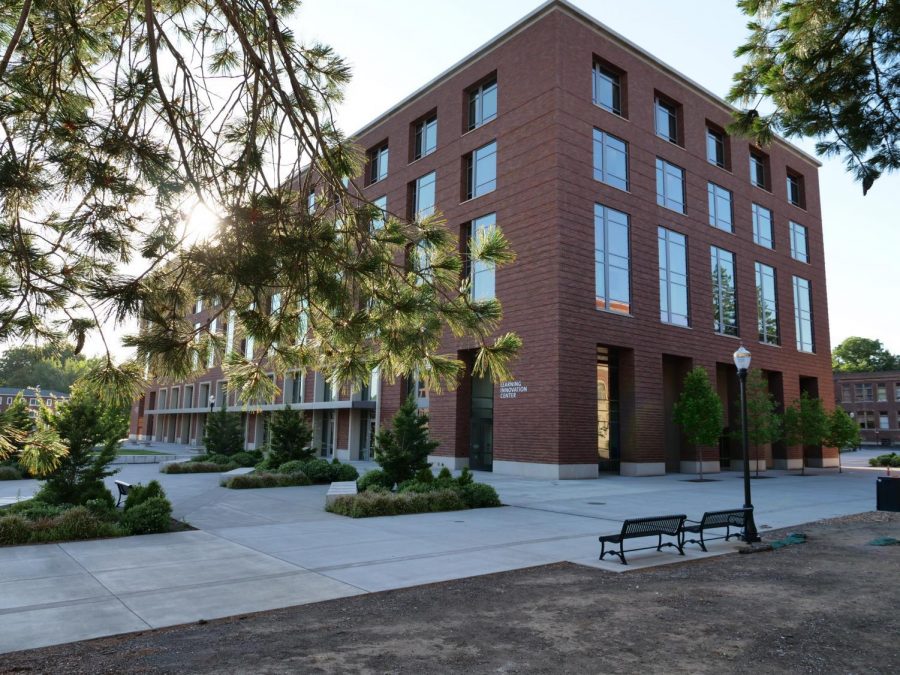OSU offers resources to make Honors College more accessible
June 25, 2018
Students struggle to manage Honors College expectations
For many students, college can be a scramble to compile an impressive resume, glowing recommendations and high-impact experiences as they work toward a degree. The subset of students who enroll in the Oregon State University Honors College can face an additional set of dilemmas, but also gain access to a unique set of opportunities.
HC students, especially those who are members of underserved communities, may struggle to pay for the extra tuition and balance honors classes with classes for their major. To mitigate this, the HC develops and runs initiatives to keep the program and all its benefits available to students from all backgrounds.
There are about 1200 OSU students currently working toward an Honors Baccalaureate degree, according to the OSU HC website. Students in the honors program must take a certain amount of honors classes, open only to HC members. These classes must include a set number of upper-division credits and colloquia credits, with colloquia classes being small classes on specialized topics. Students must also keep their GPA above 3.25 and complete a thesis on a topic of their choosing.
Steve Clark, vice president of university relations and marketing, provided statistics on student demographics within the HC.
“Data gathered by the university shows that in Fall 2017, 10 percent of the Honors College enrollment was made up of first-generation students and 16 percent was made up of high-need students,” Clark said via email.
In comparison, 23.3 percent of total OSU undergraduate students enrolled on the first day of the term were first-generation, according to the OSU Spring Term 2018 Enrollment Summary. These students are the first in their family to attend a college or university.
Tyelor Reynolds, a second-year chemistry major in the OSU Honors College, is one of these students. Reynolds said his experiences receiving support from the program has been mixed.
“The extra $500 per term is definitely kind of a burden because it doesn’t seem like we’ll somehow get $6,000 worth of services or support in four years,” Reynolds said via email. “The thesis is also something that I have to rearrange my schedule, major and time around because it’s going to be a large project and commitment. I haven’t gotten any financial support from the Honors College so far, including the differential tuition scholarships, which makes being in the Honors College kind of a sacrifice of money and time to look a little better on resumes.”
However, according to Reynolds, he has enjoyed the classes offered by the HC despite the cost, as well as the lunches and research seminars offered periodically.
“In terms of honors classes requirements, implementing classes hasn’t been difficult because they usually offer honors versions of classes I have to take anyway,” Reynolds said via email. “Colloquia are nice small credit classes which help to get up to 15 credits each term, and they are usually pretty relaxed and refreshing.”
According to Reynolds, he expects to graduate Oregon State University with about $43,000 of student debt.
However, not every student who enrolls in the HC stays in the program. Carrie Sanders, a second-year biohealth sciences major and HC student, said she plans on leaving the HC soon. As an out-of-state student, Sanders explained it is difficult for her to take the extra credits that the HC requires.
“I didn’t get much financial aid from the government or the school to begin with,” Sanders said. “I have gotten the Honors College Experience Scholarship, but that’s directed toward an extracurricular activity, not my overall tuition. That’s why I work 13-18 hours per week: to try and help with the cost.”
To make up these gaps in students’ abilities to pay, Tara Williams, the associate dean of the Honors College, explained the HC has developed a variety of initiatives to make the college more diverse and accessible. According to Williams, their efforts are focused on three categories: recruitment, programs and scholarships. These efforts include hosting a Peer Mentoring program and free HC networking events.
“We consider a number of populations to fall within that ‘underserved’ category, certainly including students with high financial need, students from underrepresented groups, and first-generation students,” Williams said via email.
According to Williams, participation in an Honors College is immensely beneficial for students at public universities, especially those from disadvantaged backgrounds.
“Research has found a positive association between honors education and student success as measured in a variety of ways (first-term GPA, first-year credits earned, first- to second-year retention, and graduation rates),” Williams said via email. “One study found that students who joined an honors college at a public university graduated at a rate that was consistently 10 percentage points higher than for similarly qualified students who did not join an honors college. Furthermore, honors college participation appeared to eliminate any negative impact of low family income on graduation rates.”
As for scholarships, students may apply for the Honors College Differential Tuition Scholarship to offset the $1500 that HC enrollment adds to a student’s tuition per year. Additionally, there are experience-based programs and scholarships offered, such as the DeLoach Work Scholarships, the Chambers Environmental Research Awards and the James Krueger Honors Fund, among others.
“The HC has a number of other programs for current students to support research and experiential learning,” Williams said via email. “Financial need is taken into account for some of these, as well.”



















































































![Newspaper clipping from February 25, 1970 in the Daily Barometer showing an article written by Bob Allen, past Barometer Editor. This article was written to spotlight both the student body’s lack of participation with student government at the time in conjunction with their class representatives response. [It’s important to note ASOSU was not structured identically to today’s standards, likely having a president on behalf of each class work together as one entity as opposed to one president representing all classes.]](https://dailybaro.orangemedianetwork.com/wp-content/uploads/2025/03/Screenshot-2025-03-12-1.00.42-PM-e1741811160853.png)























